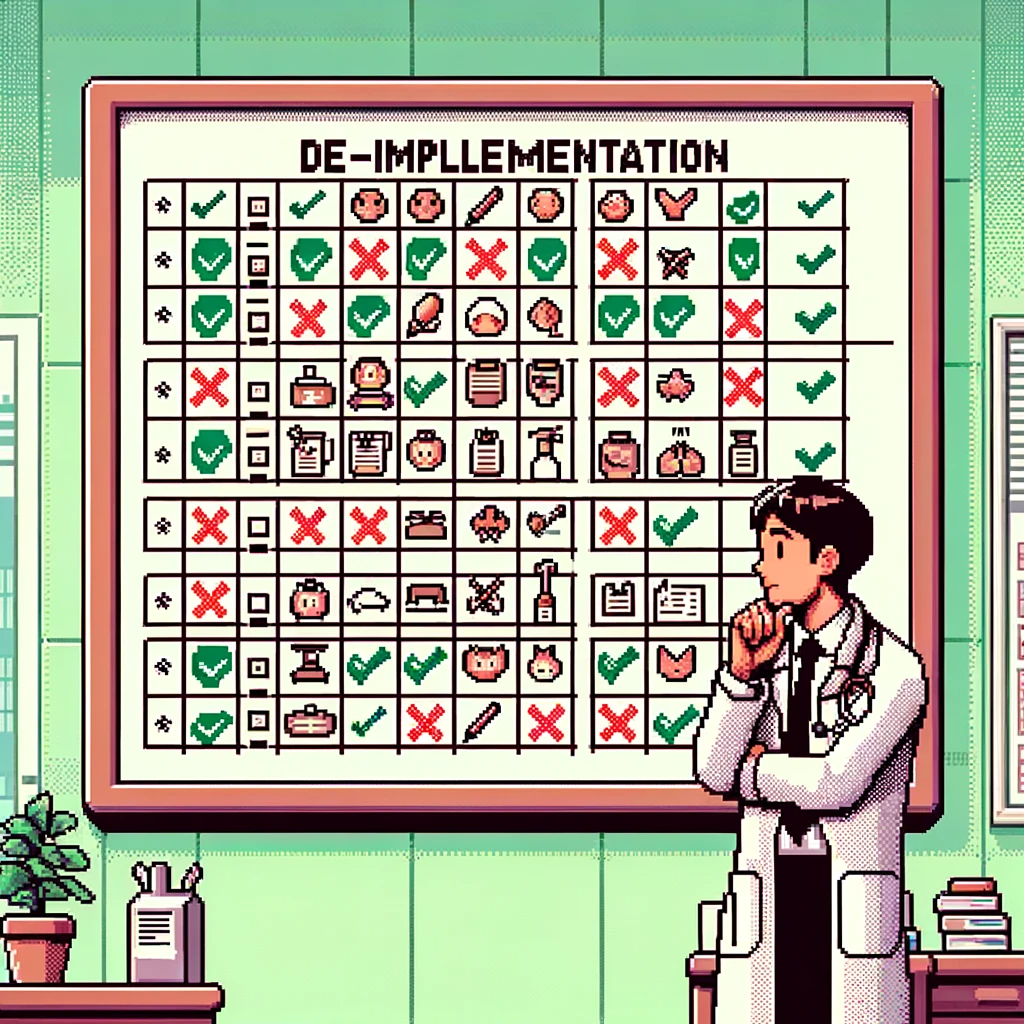In the ever-evolving world of healthcare and public health, the term ‘de-implementation’ is gaining prominence. This concept, essentially the process of phasing out ineffective or harmful practices, is crucial for enhancing the efficiency and effectiveness of healthcare services. The article, A Scoping Review of De-implementation Frameworks and Models by Callie Walsh-Bailey et al., published in Implementation Science, delves deep into this topic. The article is a treasure trove of insights for anyone interested in the critical process of removing redundant healthcare practices.
What is De-implementation?
De-implementation is about discontinuing practices that are either ineffective, less effective, or potentially harmful. In simple terms, it’s like cleaning out your medicine cabinet, getting rid of what doesn’t work or could be harmful, to make room for better treatments.
Key Findings of the Review
- Wide Array of Frameworks and Models: The review identified 27 unique frameworks and models (FM) from various disciplines such as healthcare, public health, and public policy. These FMs help in conceptualizing and guiding the study of de-implementation.
- Complex and Multi-level Process: Most FMs operate on multiple levels, indicating that de-implementation is a complex, multi-faceted process that involves various organizational and systemic factors.
- Variability in Application: The study found considerable variability in the application of FMs across different settings and interventions, pointing to the need for adaptable and flexible approaches.
Implications for Evaluation Practice
- Need for Adaptable Frameworks: Given the diversity in settings and interventions, evaluators need to select and adapt frameworks that are context-specific and can address the unique challenges of de-implementation.
- Focus on Multilevel Approaches: Evaluators should consider frameworks that operate on multiple levels, acknowledging the complexity of healthcare systems and the interplay of various factors in de-implementation.
- Integration of Learnings from Various Fields: There’s a significant opportunity for integrating insights from public policy, business, and other disciplines into the evaluation of de-implementation processes.
Engaging with the Article
This article, accessible here, is a must-read for professionals in healthcare and public health policy, as it sheds light on an underexplored but critical aspect of healthcare delivery. It’s not just about what new practices to implement, but also about what old practices to discontinue for better health outcomes.

